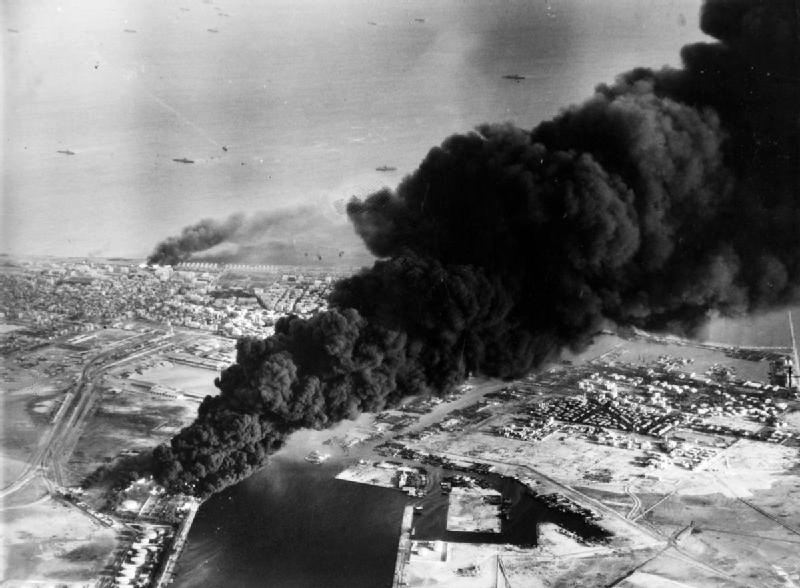
Image: Port Said, Egypt, in 1956, following an Anglo-French assault during the Suez Crisis. Courtesy of Wikimedia Commons.
Download PDF: The Conservative Government and the End of Empire, 1951-1957, in three parts
Part One: International Relations
Part Two: Politics and Administration
Part Three: Economic and Social Policies
Volume Details: Series A, Volume 3. First published by The Stationary Office in 1994. Electronic version reproduced with permission of the editor under an Open Government Licence.
Editor Details: DAVID GOLDSWORTHY is Honorary Professorial Fellow in the School of Political and Social Inquiry at Monash University. He is the co-editor, with Peter Edwards, of Facing North: A Century of Australian Engagement with Asia (2001, 2003) and author of Losing the Blanket: Australia and the End of Britain’s Empire (2002).
Selection from Introduction:
“Despite much new investment, Britain in 1952 had still not recovered from wartime capital losses amounting to a quarter of the national wealth. Terms of trade were adverse; the pound was not strong. One of several essential tasks, in the face of all this, must be to review ‘the whole field of our overseas commitments, covering both our present military layout and foreign policy and strategy on which it is based, and also our economic obligations both to Commonwealth and Colonies and to our foreign creditors’. All such commitments needed to be brought into line with Britain’s real economic capacity to fulfil them.” (Part I, p.xxvi)
“Colonialism was itself an issue in Britain’s international relationships. WG Wilson of the Colonial Office’s International Relations Department argued in 1954 that the antipathy towards colonialism among many influential governments ‘is such that it is a concrete and important factor affecting Her Majesty’s Government’s ability to maintain satisfactory foreign relations and to achieve the objectives of United Kingdom foreign policy’. Moreover, this antipathy had become so strong that colonial policy itself could not be pursued without taking it into account, especially because of its galvanising effects on indigenous nationalist politicians (136). For reasons that differed in different cases, colonialism was a complicating factor in relationships that mattered a great deal to Britain: with the major allies such as the United States and France, with Commonwealth partners such as India and South Africa, and with the United Nations.” (Part I, p.xl)
